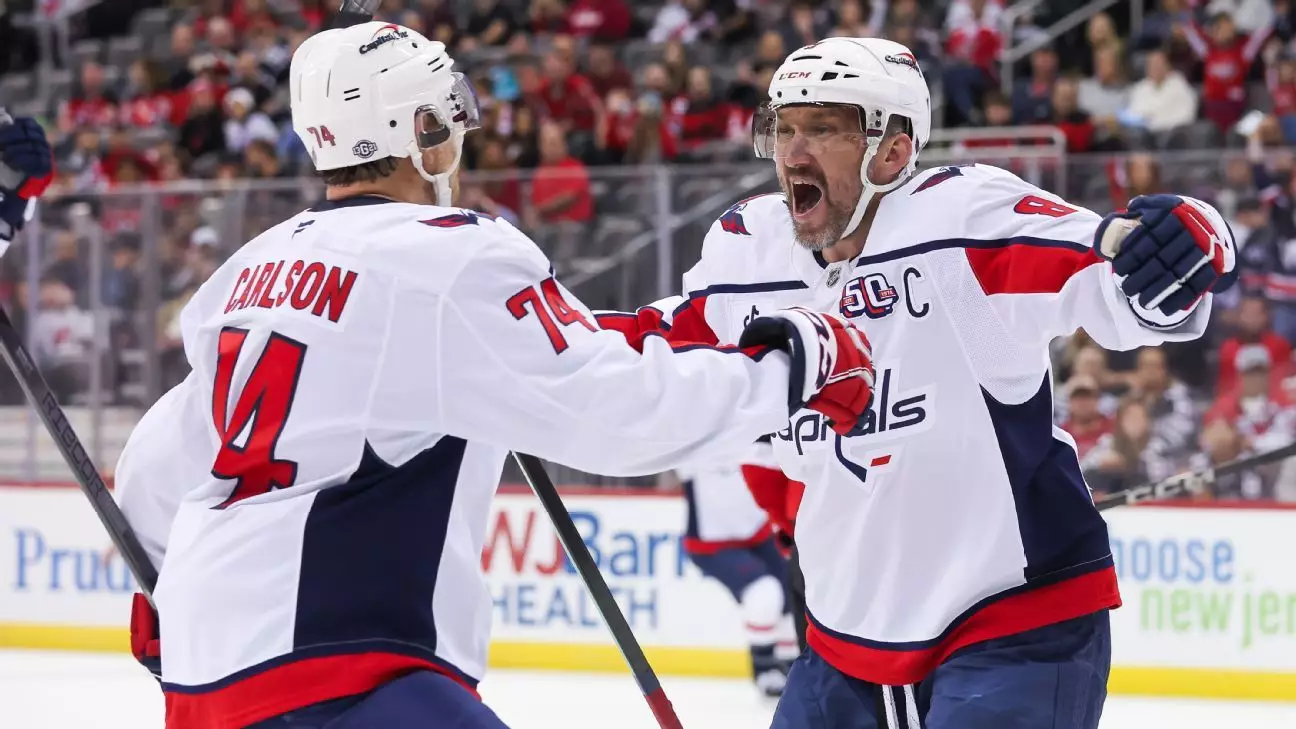In a significant development for the Washington Capitals, team captain Alex Ovechkin is set to miss four to six weeks due to a fractured left fibula, an injury that alters the dynamics of the team both on and off the ice. As of now, the Great 8’s historic chase for Wayne Gretzky’s all-time goal record—currently at 894—faces an unexpected halt. Ovechkin, who boasts 868 career goals, was showing alarming consistency with a pace that could have seen him net a career-high 68 goals this season. His absence raises questions not only about the trajectory of his record-breaking mission but also about the Capitals’ performance in the highly competitive Metropolitan Division, where they currently sit just a point behind the Carolina Hurricanes.
Impact of Ovechkin’s Injury
The immediate impacts of Ovechkin’s injury are multifaceted, signaling a change that extends beyond mere numbers on the scoreboard. Throughout his lengthy 20-season career, Ovechkin has exhibited remarkable durability, missing only 35 games due to injuries. Thus, the confirmation of his fibula fracture came as a shock to both his teammates and fans. Winger Tom Wilson encapsulates the sentiment: the team is universally “bummed out,” as Ovechkin has always been a steadfast presence.
Ovechkin’s collision that led to the injury was a grim reminder of how quickly circumstances can shift in professional sports. Walking out with a boot on his leg was not just a physical sign of injury but a mental hurdle that he must now overcome. Recovery from a fibula fracture is often complicated, requiring not just physical healing but also a psychological re-acclimatization to on-ice play. The veteran presence of Ovechkin is vital; his positive energy and robust mentality have been cornerstones of the Capitals’ locker room culture.
When considering how the Capitals will cope without Ovechkin, the first aspect to explore is their scoring capability. The team thrives on offensive output, averaging 4.33 goals per game—an impressive figure that underscores their offensive strengths. However, replacing the prolific goalscorer in Ovechkin is an uphill battle. Coach Spencer Carbery may restructure the forward lines, potentially giving Connor McMichael an increased role alongside Pierre-Luc Dubois and Tom Wilson in the top line.
With Ovechkin absent, the expectation falls heavily on the shoulders of others to step up. Players like Dubois—who holds a track record of scoring success yet has only netted once this season—must find their scoring touch to remain competitive. Simultaneously, McMichael and fellow forward Aliaksei Protas will need to intensify their contributions, as they sit as key players in Ovechkin’s absence. However, the glaring disparity between Ovechkin’s goal-scoring ability and potential substitutive performance from teammates creates uncertainty that could jeopardize the team’s current standing.
The Capitals are not just losing a top-tier goal scorer; they are losing a leader and an inspirational figure. Ovechkin’s pursuit of Gretzky has motivated the entire lineup, with every player seemingly invested in his journey to break the record. The emotional void left by his absence is expected to weigh heavily on the locker room atmosphere. Veteran defenseman John Carlson notes the palpable excitement trailing Ovechkin throughout his remarkable start this season.
Now, the responsibility will fall on the Capitals’ leadership group to not only stabilize the team but also motivate their peers in the face of adversity. The players must embrace the challenge of maintaining their season’s drive, even when deprived of their most prolific scorer. If the team unites in this crucial period, they might just find a way to compete effectively and prove that their collective will can withstand setbacks.
Looking Ahead: The Capitals’ Path Forward
From a tactical standpoint, as the Capitals navigate this transitional phase, they must redistribute offensive responsibilities while maintaining their competitive edge. The team’s impressive offensive capabilities can assist in filling the gap left by Ovechkin, but the eventual return of their captain is undoubtedly the long-term goal. The projected timeline for Ovechkin’s return indicates that he could play as soon as late December, but this window is flanked by the cautious judgment of both medical staff and coach.
As the Capitals strive to keep their playoff aspirations alive, much will depend on the resilience and adaptability of the whole team. Long seasons are often defined by critical injuries, but effective navigation through such terrain is what can set teams apart. Fans and analysts alike will be watching closely, eager to see how the Capitals embrace this challenge while keeping their sights fixed on the honors that lie ahead.

